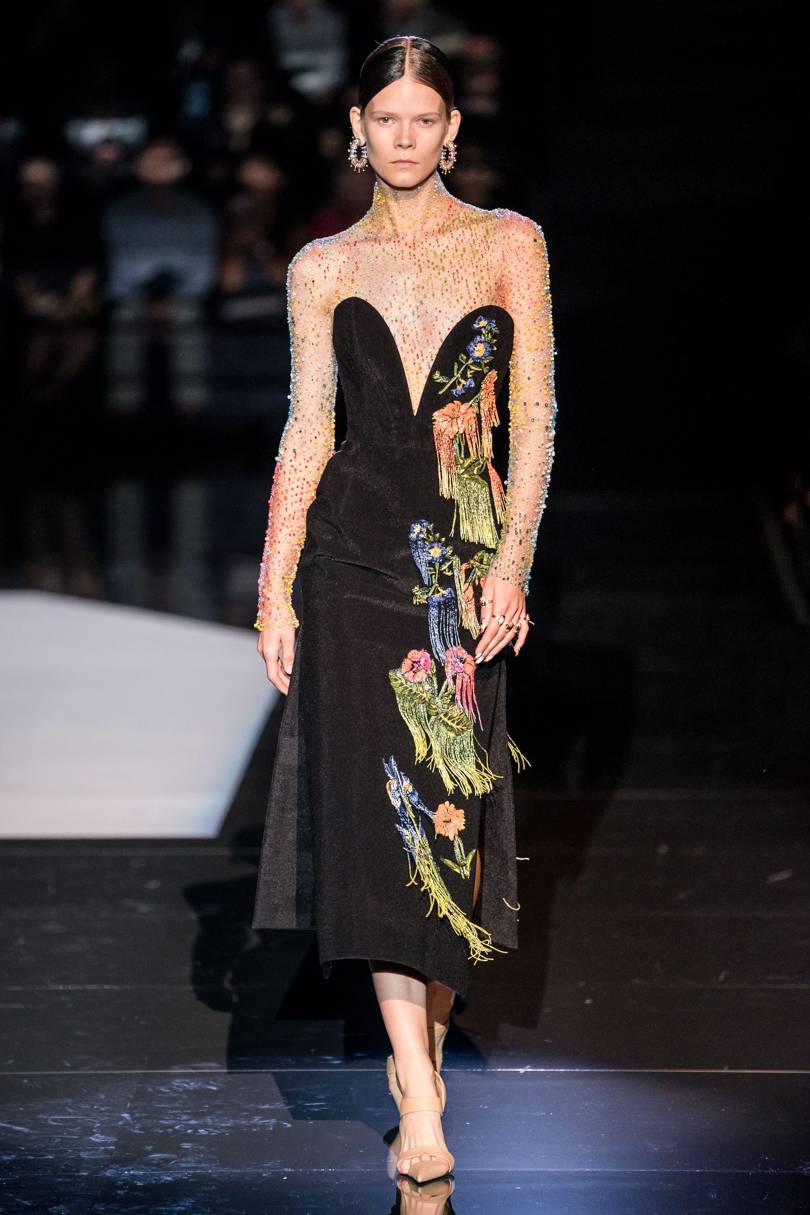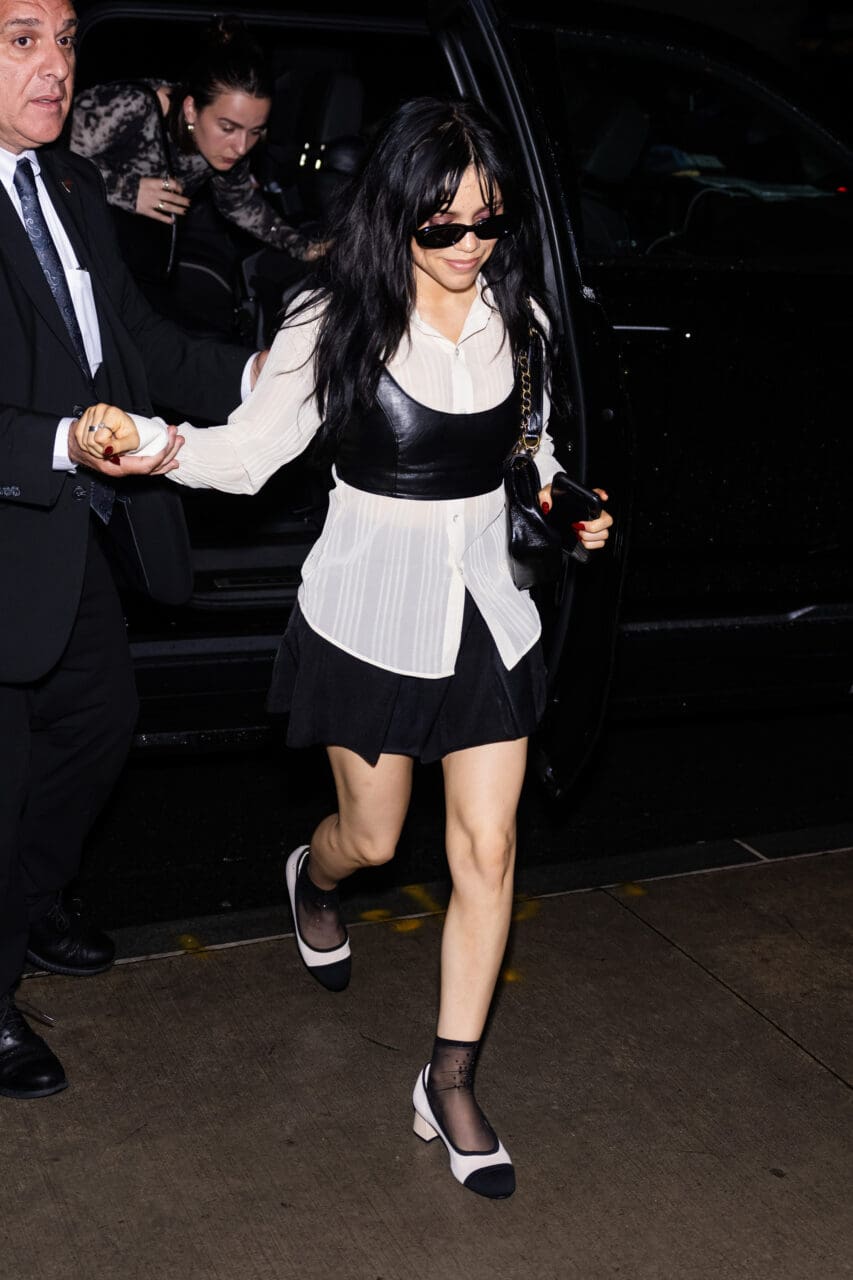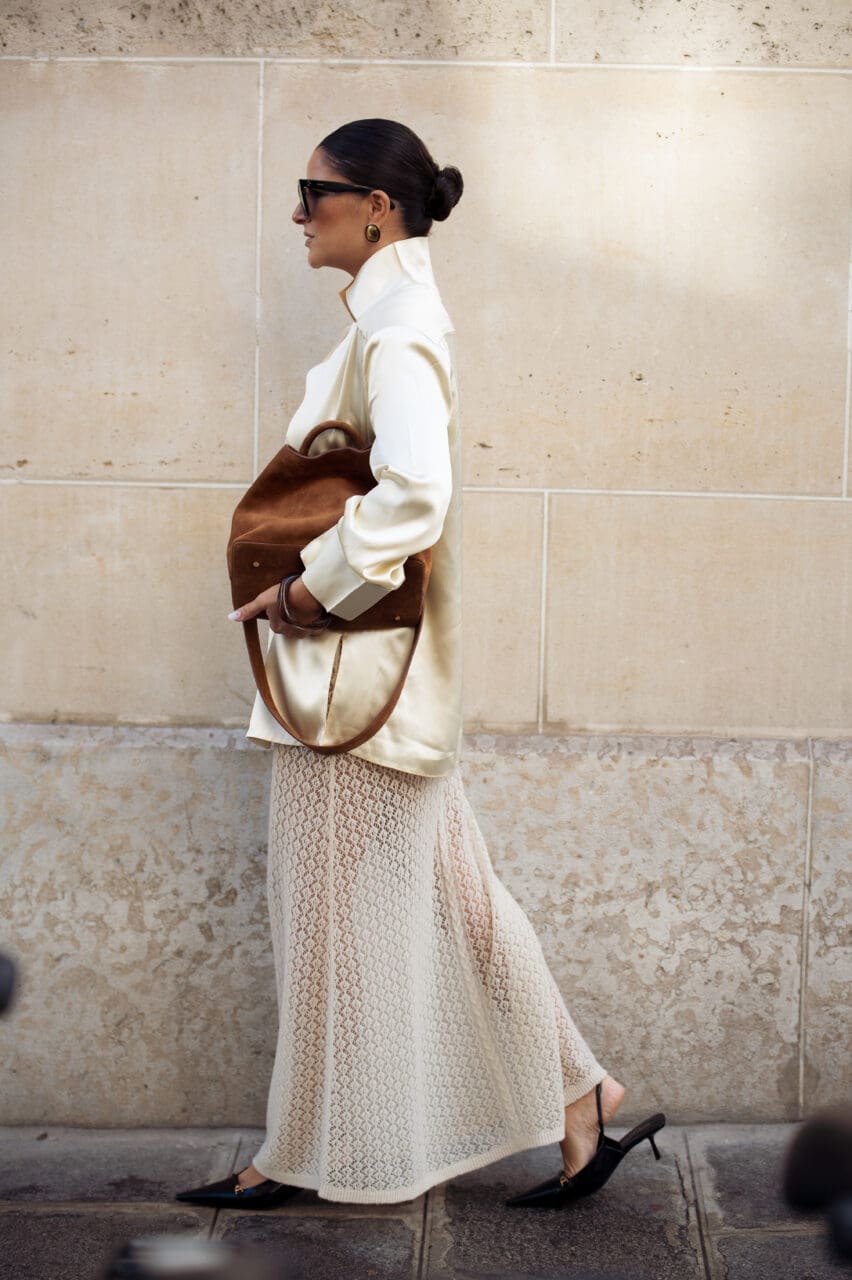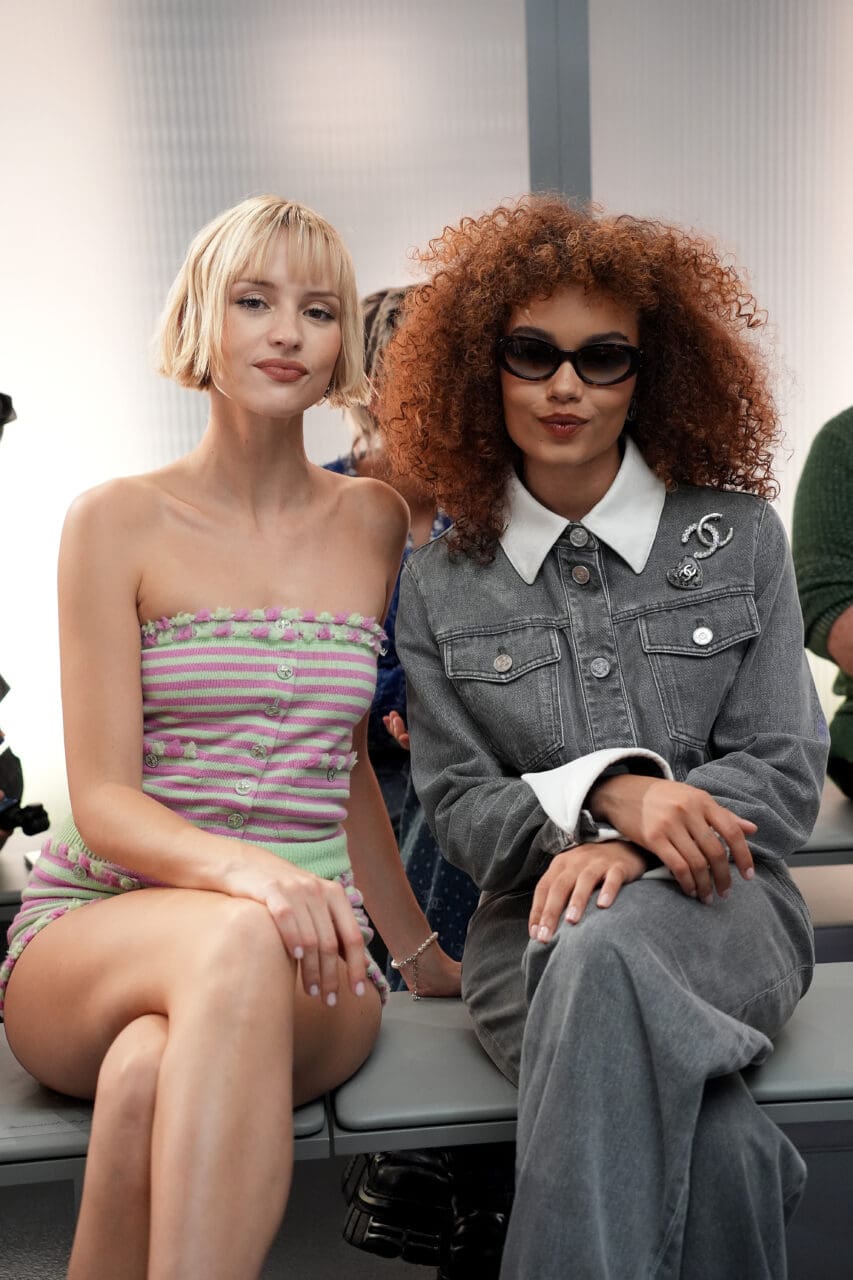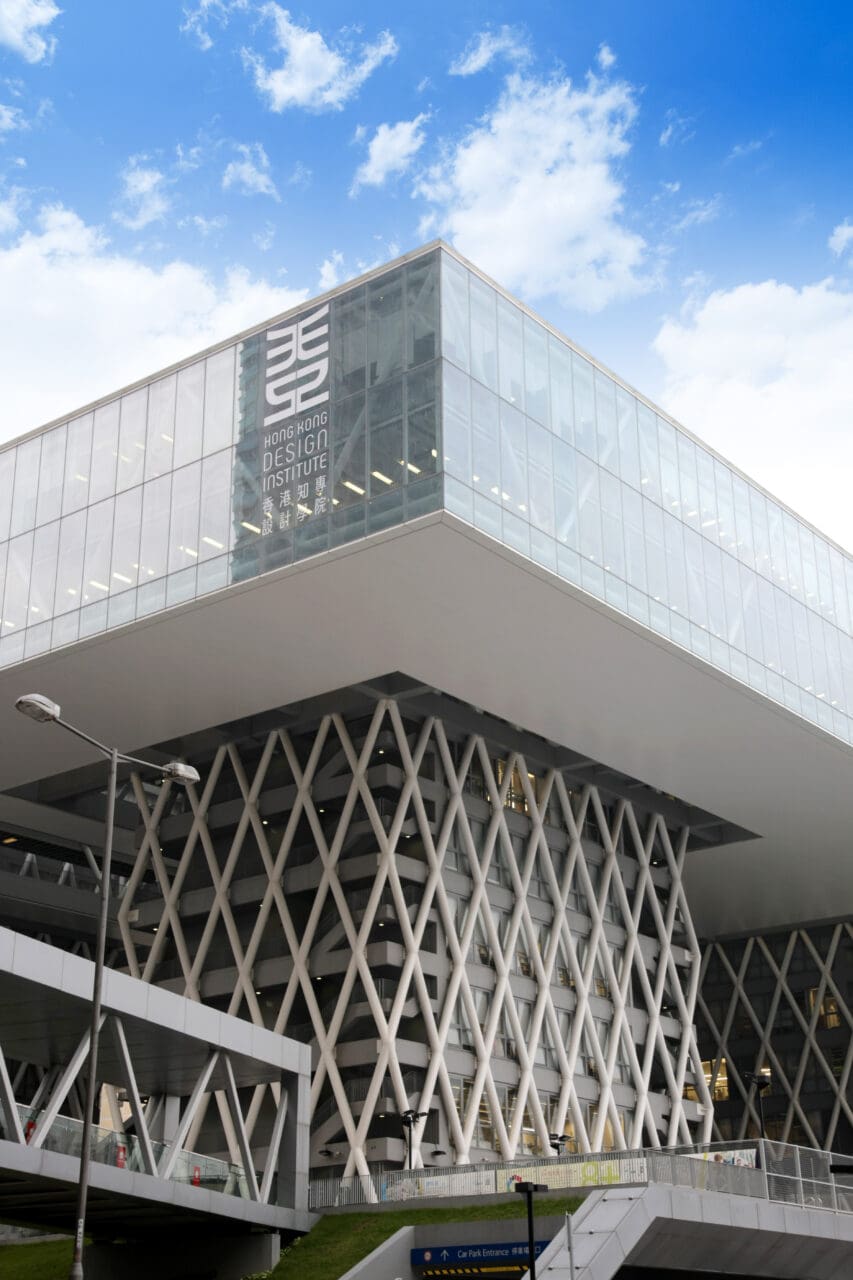It was the most charming of presentations. In the middle of the runway was a table where designer Daniel Roseberry – hoodie, jacket, black jeans and trainers – drew manically and then calmly
As he explained it, the American designer was re-creating the moment when he was asked to present himself as the designer for Schiaparelli, the brand founded in Surrealism way back in the 1930s.
View this post on Instagram
New Daniel Roseberry draws on stage as the dream of his Schiaparelli comes to life
“I rented a studio under Manhattan Bridge and walked every morning from my apartment to the studio, anonymously built a proposal, and then a month and a half later I was at the Place Vendôme,” said the designer, explaining his physical and mental journey from working for 10 years with Thom Browne in New York, to meeting with Diego della Valli – the Italian entrepreneur behind ‘Schiaparelli’ – and his new venture into haute couture.
“I thought about Schiaparelli, but I didn’t want any nostalgia or to go back to Surrealism, so let’s take the mentality of Elsa and find the link between the way she felt about things and what I do,” said the designer. “And then just go straight forward into the future.”
Brave words. Bold words even. But difficult to see the collection that effectively opened the haute couture Paris season as anything more than a pastiche. The first of three units seemed to be played to the rhythm of Thom Browne’s tailoring – which was no bad thing and offered a sleek, cut-away jacket worn with white under-shorts and hose.
Then came colour: a vivid orange layered dress, cut away at the front to reveal skinny, sparkling trousers, followed later by vivid floral patterns. There was even an opportunity to play flower patterns with Velcro additions, moving over the body like children’s toys.
Flower patterns with Velcro additions that moved over the body like children's toys.
Schiaparelli has recently created some successful relationships with red carpet dressers, mostly of the kind which might fit well with the arty world of the original ‘Schiap’. Some of Roseberry’s offerings were witty, as in a bodice of red insects, with an extra number apparently scurrying across the bust.
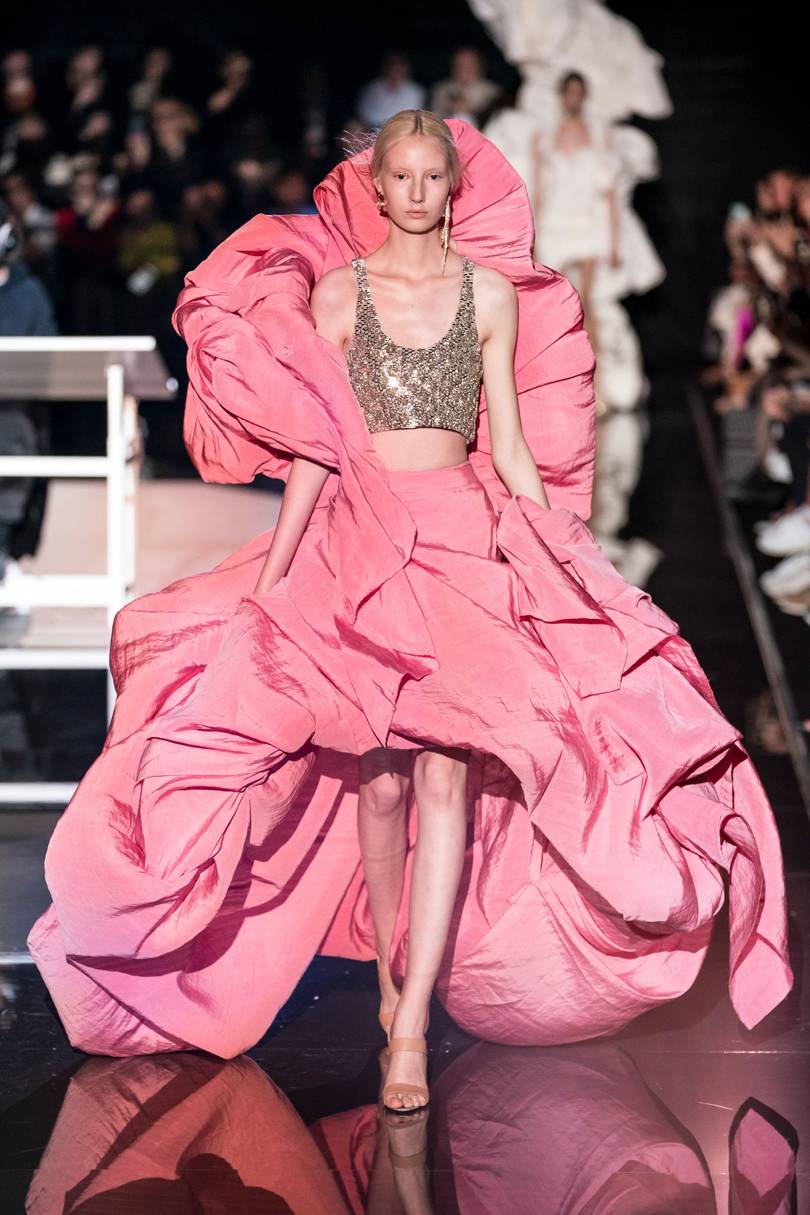
Some presentations were dramatic, one-time outfits, some stunning in their theatric offering of a vast snowscape or what might have been a giant blob of ice cream.
Other presentations were dramatic, one-time outfits, some stunning in their theatric offering of a vast snowscape or what might have been a giant glob of ice cream. You could already hear an echo of the guffaws for any celebrity who dares to wear it.
The disappearance of Karl Lagerfeld at Chanel highlights the fact that replacing talent in a hallowed or historic brand is more difficult that onlookers can imagine. Do you take the historic route, re-imagining Elsa Schiaparelli and her witty wickedness by making bras clamped over the breasts like shells?
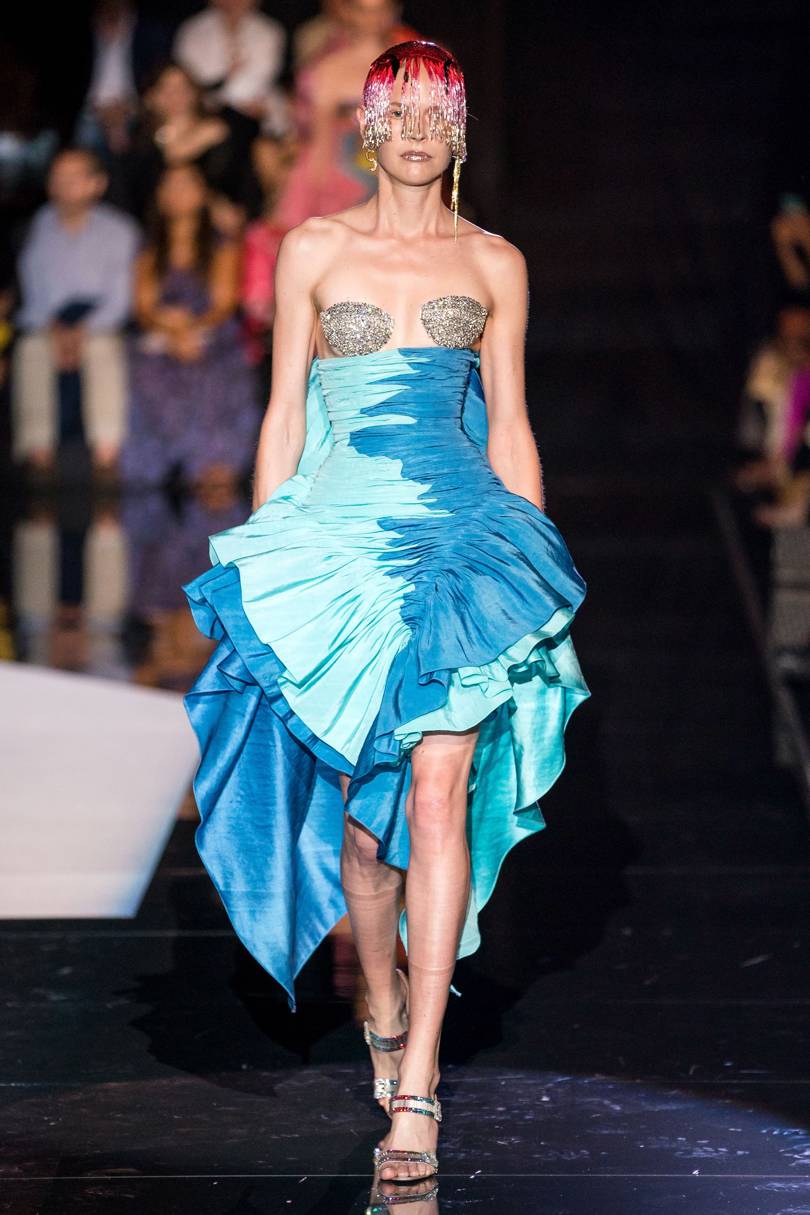
Do you take the historic route, re-imagining Elsa Schiaparelli and her witty wickedness by making bras clamped over the breasts like shells?
The famous Schiap ‘Shocking’ fragrance has left behind an awkward legacy. Nothing much in fashion shocks us today – even in couture. And that is why the new designer’s vision was smart – even if he did not always adhere to it.
“I didn’t include any visual reference to the past – no lips, no hands, no nothing,” he explains. “It is a collection with three chapters: first, tailoring; the second, day going into night – an amazing evening capsule and then when you fall asleep it is a dream; the third is pure expression, basically.
“Whereas at the beginning we start more sensual, more internal, more earthbound, even the soles of the shoes are printed lizard with grass. And then at the end, you have printed lizard with water. It’s kind of like this baptism that happens at the end. And we go full colour – the jewels of the collection.”
Fine words, but the designer’s dreams do not look as easy to wear as daytime clarity.
Originally published on British Vogue.
Editor
Suzy Menkes

